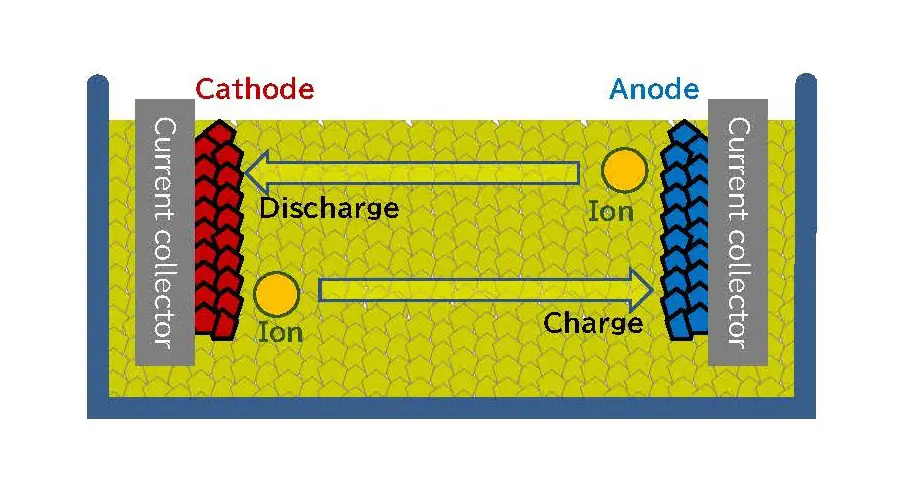In the ever-changing world of electric vehicles (EVs), the search for advanced battery technologies that deliver longer range, faster charging times, and enhanced safety is unceasing. Toyota, a pioneering force in the automotive industry, has now entered the stage with a game-changing promise: solid-state batteries capable of powering EVs for up to 900 miles on a single charge which is more than six times the current range of its flagship EV, the Mirai.
SEE ALSO:
- The Viral Trick That Lets You Open Your Car From Afar Using Your Head
- Air Taxis – no Longer Science Fiction
Toyota, the world’s leading automaker, recently unveiled its ambitious agenda to develop and bring solid-state batteries to the electric vehicle (EV) market by 2028. Solid-state batteries, regarded as the future of battery technology, promise enhanced energy density, quicker charging intervals, and heightened safety compared to traditional lithium-ion batteries.
Toyota’s groundbreaking claim revolves around these solid-state batteries propelling EVs to achieve an astounding 900 miles on a single charge, a remarkable leap from the current range of their flagship EV, the Mirai. Moreover, the company asserts that their solid-state batteries can recharge from 10% to 80% capacity in under 20 minutes, mirroring the convenience of refueling a gasoline-powered vehicle. With these innovations, Toyota’s solid-state batteries are poised to revolutionize the EV landscape, advancing us towards a more sustainable future.

Advantages of using solid-state batteries in the auto industry include
- Higher Energy Density: Solid-state batteries typically offer higher energy density compared to traditional lithium-ion batteries. This means they can store more energy for a given volume, potentially providing longer driving ranges for electric vehicles (EVs).
- Faster Charging: Solid-state batteries can be charged more quickly than traditional lithium-ion batteries. This is a significant advantage as it reduces charging times and makes EVs more convenient for consumers.
- Improved Safety: Solid-state batteries are generally considered safer than traditional lithium-ion batteries. They are less prone to overheating, thermal runaway, and fires, which is a critical safety consideration for EVs.
- Longer Lifespan: Solid-state batteries are expected to have a longer lifespan, with a higher number of charge and discharge cycles. This can reduce the need for battery replacements and lower the total cost of ownership for EVs.
- Compact and Lightweight: Solid-state batteries can be made in more compact and lightweight designs. This can lead to weight reduction in EVs, contributing to improved efficiency and performance.
- Wider Temperature Range: Solid-state batteries are more stable across a range of temperatures, making them suitable for various climate conditions and improving the overall reliability of EVs.
- Environmental Benefits: Solid-state batteries may reduce the environmental impact of EVs by using more sustainable materials and reducing the need for frequent replacements and recycling of batteries.
- Greater Design Flexibility: The compact nature of solid-state batteries provides automakers with more design flexibility. They can be integrated into different parts of the vehicle, including the chassis, without occupying a significant amount of space.
- Compatibility with High-Power Applications: Solid-state batteries are suitable for high-power applications, making them ideal for sports cars and other performance-oriented EVs.
- Reduced Dependency on Rare Materials: Solid-state batteries have the potential to reduce the reliance on rare and expensive materials like cobalt, which is commonly used in lithium-ion batteries.
- Enhanced Range and Performance: Solid-state batteries may significantly extend the range of electric vehicles and improve their overall performance, which can be a key selling point for consumers.
- Market Competitiveness: Automotive manufacturers that adopt solid-state batteries may gain a competitive advantage, as these batteries represent the next generation of energy storage technology.
- Contribution to Carbon Neutrality: The adoption of solid-state batteries can contribute to the reduction of greenhouse gas emissions, aligning with the goals of carbon neutrality and sustainability in the automotive industry.
While solid-state batteries offer many advantages, they are still under development, and there are challenges to be overcome, such as production scalability and cost reduction. As technology advances, solid-state batteries are expected to play a significant role in the future of electric vehicles.
Source: Toyota
More: Door-to-Door Aerial Transportation Flying Car – Aeromobil



Comments